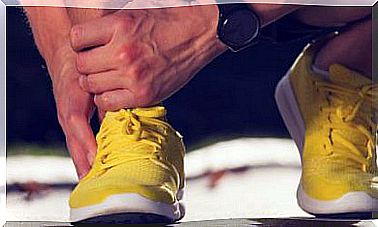Is It Better To Run Or Walk?
Although both exercises are beneficial for health, choosing one or the other will depend on the physical conditions and the results to be achieved.

Some people say that going for a run or a walk are great options for feeling healthy and losing weight. So at this point a question arises: is it better to run or walk?
If you want to know the answer and discover which is the activity that best suits your lifestyle, keep reading.
Benefits of running and walking
Whether you say them in Spanish or in their English version ( running and walking ), the truth is that these two words are in fashion.
Articles have now been published to demonstrate the benefits of jogging; including stories from athletes that indicate how their lives have changed or what is the best footwear to go out and exercise.
However, you may have already tried after reading about it and realized that running is not your thing. And now? How do I enjoy the benefits of this exercise? And the answer is: walking. Of course, this method also has its name in a foreign language: power walking or brisk walking.
Any physical activity is beneficial for health. So swap out the couch for going for a walk, jog, or run. In this way, you will reduce the chances of suffering the typical problems related to sedentary lifestyle: obesity, heart disease and fluid retention.
The World Health Organization (WHO) recommends that a minimum of 150 minutes of aerobic and moderate-intensity physical activity be performed per week. If, for example, you walk briskly with a brisk walk for 20 minutes a day; you will already be complying with the WHO recommendations.

Which one do you lean the most?
For some years now, running fever has been part of the routine of some people. For this reason, studies on the effects of sport began to be carried out. An example of this is a publication of the Journal of the American College of Cardiology ; which shows that running at a reduced speed reduces the risk of early mortality by 30%.
However, in the case of those people who run faster; the truth is that it does not have so many advantages. Brisk walking is more positive than sprinting. That is, intense but shorter duration physical activity does not report better effects than more extensive moderate ones.
On the other hand, walking is suitable for everyone, regardless of age or health problems. The only limitations are in structural or joint pathologies. And, even so, the truth is that walking slowly is recommended for those who have recently operated, who have suffered a heart attack or who have diabetes.
You don’t need training to hike… We do it since we are one year old and we will do it for a long time. Walking is the basis for those who are not usually very active or obese, and even become the gateway to other sports.
However, this does not happen with running ; Since it requires a greater effort, it is more painful and difficult to keep up. In turn, running leads to a greater number of injuries.
Running or walking?

To know if running or walking is best, pay attention to these questions.
Choose the walk if:
- You want to do a sport for many years regardless of specific conditions.
- You have suffered an injury while exercising.
- You are overweight or obese.
- You have knee, joint or back problems.
- You are looking for a low impact sport.
- You want to reduce the nerves of work and everyday life.
- You don’t tend to exercise too much.
- You want to take advantage of it to meet people.
- You like the idea of admiring the landscape or getting in touch with nature.
Instead, you can choose to run if:
- You want a high intensity exercise.
- You like to play sports and have always practiced it.
- You don’t have too much free time.
- You want short-term results.
- You prefer to exercise alone.
Do you want to lose weight? So you better walk. Contrary to popular belief, you can burn a lot of calories while walking. The only thing that changes is the time factor.
For example, a 5 minute run has the same benefits as a 15 minute walk. To balance the benefits of running 25 minutes you would have to walk 105 minutes.
What are the shared characteristics of both disciplines?
We have talked about the differences between running and walking, but not about the things they have in common. In this sense, the two exercises serve equally to:
- Increase energy.
- Reduce blood pressure.
- Lower cholesterol
- Reduce the risks of suffering from cardiovascular diseases.
- Improve self-esteem and mood.
- Burn calories.
Adapt activities to a healthy lifestyle
Once you have seen the different alternatives, it is the key moment to choose the activity that best suits you; respecting your lifestyle and tastes. To do this, it is always helpful to go to a professional to organize a fixed exercise routine.
And you? Do you dare to start today?









